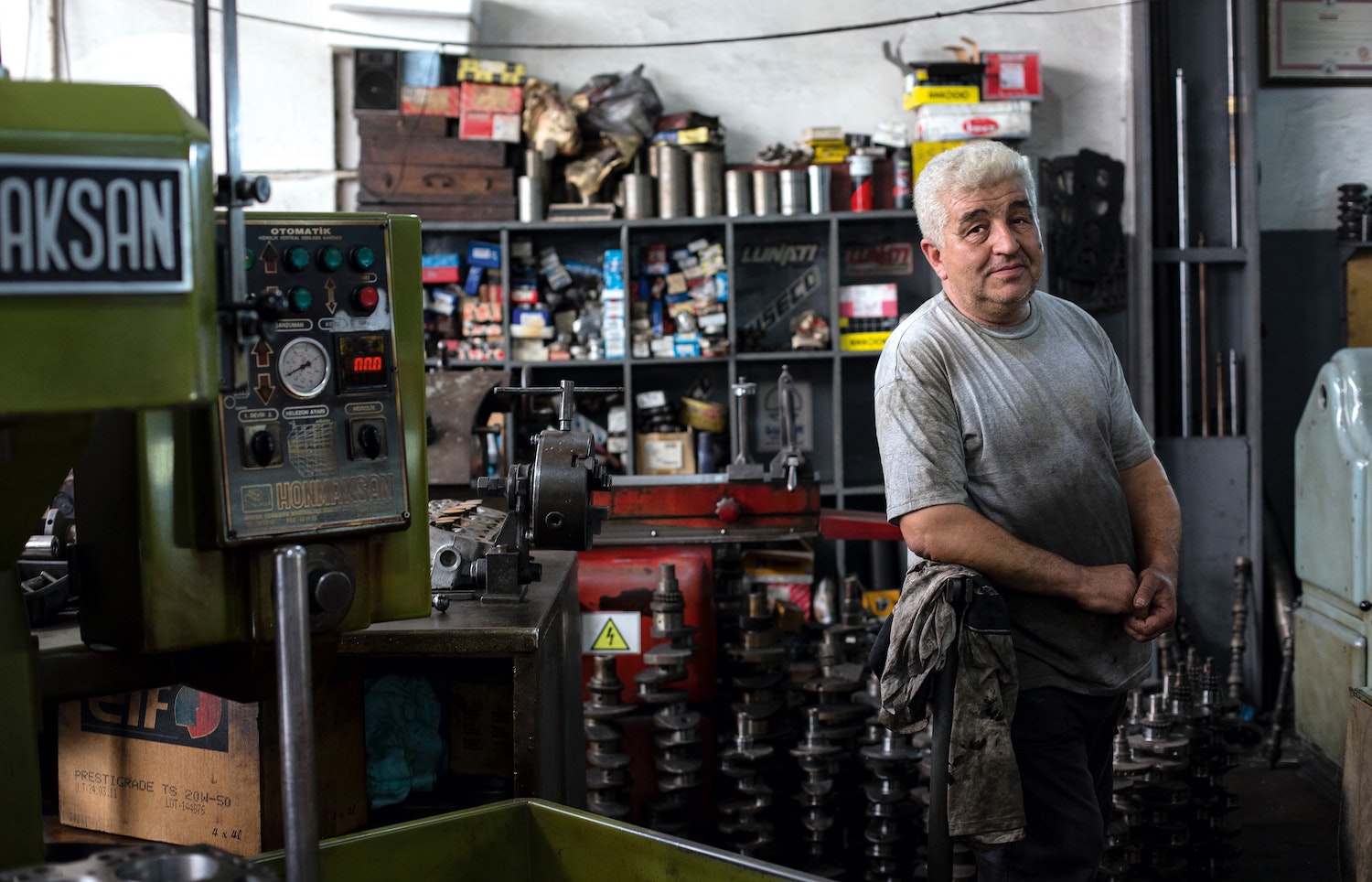ImpactAlpha, Nov. 30 – Patagonia founder Yvon Chouinard’s unusual succession plan made waves with its massive commitment of the family-owned company’s future profits to a nonprofit.
Even more interesting was the Chouinard family’s use of a legally binding trust to preserve the company’s independence and social-mission.
Perpetual Purpose Trusts, or purpose trusts, are non-charitable legal entities that have long been used to protect inheritances and family assets. The structure is getting a fresh look as a business-ownership succession tool to protect a company’s mission, reward its stakeholders and transfer ownership and governance to employees.
Employee-focused purpose trusts, or ownership trusts, could help address yawning wealth gaps by cutting employees in on the wealth they helped create, says Zoe Schlag of Common Trust, a new financier and adviser to small business owners seeking to convert to ownership trusts.
Common Trust is seeking to help meet the demand driven by a “silver tsunami” of owners over the age of 55 in search of a succession plan. As many as three in five U.S. businesses will seek a sale in the coming decade. Private buyers, such as private equity firms, are expected to meet only a fraction of that demand.
“It’s clear that the way to build wealth in America is through ownership, not wages,” Schlag told ImpactAlpha. Employee ownership trusts represent “one of the largest Archimedes levers of our generation to shift toward a shared-ownership economy.” (See Common Trust’s report, “Exiting to employees through employee ownership trusts.”)
Schlag, who earlier led Techstars Impact, co-founded Common Trust with Derek Razo through a merger with San Francisco-based Purpose Foundation, which has helped hundreds of companies and communities build equitable ownership and governance structures.
One of Common Trust’s early deals helped finance the ownership trust conversion of Clegg Auto, a group of four car-repair shops in Provo, Utah, which collectively employ about 50 people. In such deals, profits continue to be reinvested in the business, but also are used to repay investors and distribute to employees.
Emerging structure
Patagonia is the largest among the small but growing number of U.S. companies converting to ownership trusts, says Mark Hand, a researcher at Southern Methodist University.
At least 32 companies in 16 states have converted to some form of purpose trust, according to a database compiled by Hand’s Liminal Advisors and other partners, including Common Trust. Variations include employee ownership trusts, perpetual purpose trusts and neighborhood trusts, which put ownership and governance of real estate in community control.
Among the group: Organically Grown in Eugene, Ore.; Firebrand Artisan Breads in Oakland, Calif.; Illuminator Collective in Brooklyn; Bicycle Technologies International in Santa Fe, N.M.; Cypress Valley Meat Company in Pottsville, Ark.; and Clegg Auto in Provo, Utah.
“The variation and the flexibility is what makes the structure so interesting,” Hand told ImpactAlpha. Understanding why founders “are making those choices, and then the impact of those choices, is really exciting to me,” says Hand, who will study the growth of the structure.
Similar to B Corporations and employee stock ownership plans, policymakers are beginning to ask how and whether the structure should be supported and regulated, says Hand. Thousands of ownership trusts have popped up in the U.K in recent years after a policy change to allow owners to avoid capital-gains taxes on sales of their shares to an employee-owned trust.
Stakeholder model
Organically Grown, a 44-year old produce distributor, formed a perpetual purpose trust a few years ago that shares economic value and governance among investors and workers, as well as growers, customers and communities.
Roughly half the transaction was funded by RSF Social Finance using debt. Libra Foundation and Purpose Ventures funded the remaining half using ‘preferred equity,’ entitling Libra and Purpose to a dividend.
“None of us in the room are ‘owners’ of Organically Grown in the traditional sense of the word,” wrote Aner Ben-Ami of Candide Group, which represented Libra Foundation in the transaction. “None of us wields outsized power.”
As sole owner, the trust’s role “is to ensure that OGC sticks first and foremost to its mission of promoting sustainable agricultural practices,” while balancing the interests of the stakeholder groups.
“Most sellers have no idea that this is an option,” says Schlag, who says family offices with long-term horizons and interest in addressing wealth inequality have been keen partners.
Capital stack
Employee ownership trusts are inexpensive to execute, flexible in design, and free of fiduciary issues that sometimes arise with employee stock options plans, another popular employee ownership tool. That makes them useful to companies with as little as 10 employees, says Schlag. Common Trust works across sectors and geographies, typically with businesses with earnings between $1 and $5 million.
In a given transaction, the business owner usually begins with 100% ownership. The capital stack typically includes senior debt from a bank, mezzanine debt from a financier like Common Trust and some amount of seller financing. The capital is loaned to the trust, which uses the proceeds to buy up the shares from the owner. The owner, the bank and Common Trust are paid back through company cash flows over a long-term horizon.
For employees, the structure gives them access to a portion of future profits without putting up capital or putting themselves at risk.
“One way to do this wrong would be to finance a deal with a really short time horizon or a high return expectation because that’s money directly out of workers’ pockets,” says Schlag. “Family offices tend to be very aligned in terms of a long-term position and an equitable deal structure.”











